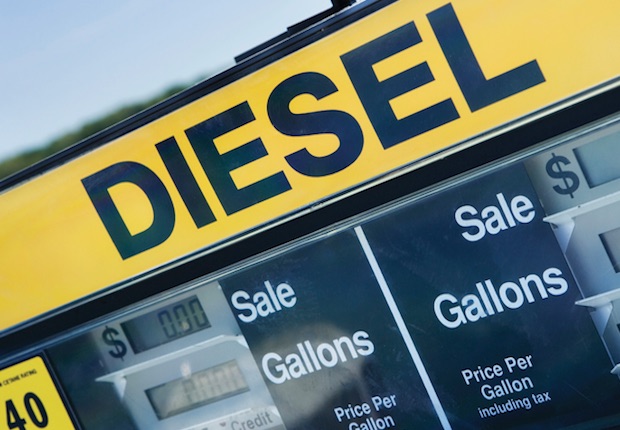
Need to know
- The delayed removal of the 3% diesel supplement on company car tax was announced in November 2015’s Autumn Statement.
- On a fairly standard fleet car, employees face an additional benefit-in-kind tax liability of around £155 per annum, while employers face additional Class 1A national insurance contributions.
- For many high-mileage company car drivers, diesel fuel savings will continue to outweigh the additional capital and tax costs.
Government plans to delay the removal of the 3% diesel supplement on company car tax from April 2016 to April 2021 could leave employees counting the cost.
Chancellor George Osborne made the announcement about the delay in his Autumn Statement speech, saying that it was due to a “slower than expected introduction of more rigorous EU emissions testing”. However, some have interpreted the move as a cynical tax-raising ploy aimed at those who keep the economy going by battling around the nation’s motorways.
The delayed removal of the 3% diesel surcharge could potentially impact four out of five company car drivers, according to Heather Simpson, principal consultant at Lex Autolease. The relatively short-term notice of changes to company car taxation that the government’s November announcement provided has also been criticised within the fleet industry.
Introduction of the supplement
The introduction of the diesel supplement dates back to 2002 when the government introduced a revised method for calculating company car taxation based on the car’s P11D value and official carbon dioxide (CO2) emissions. Diesel vehicles had a 3% supplement added to the calculation, because they were deemed dirtier than petrol equivalents.
Since CO2-based company car tax was introduced, the lower threshold, the CO2 emissions figure used to set the 15% rate, has been periodically lowered to encourage the take-up of cleaner, more fuel-efficient cars.
High tax bills
The retention of the diesel surcharge will leave company car drivers facing higher-than-expected tax bills from next April, when they thought diesel cars would be brought into line with their petrol counterparts. As a direct result of maintaining the diesel supplement, organisations will need to relook at their car policy and review their car choice list, says Ken Buckley, head of sales at TCH Leasing. “Many organisations will have formulated a [car] policy based on the fact that the supplement was being removed,” he says.
“[With] a fairly standard fleet [car], such as a Ford Mondeo, the employee will now carry an additional benefit-in-kind liability of £155 per annum, while the employer will carry additional Class 1A national insurance contributions of £107 per annum. [Employers] will not want to see their fleet costs escalate and will need to reconsider the diesel-versus-petrol question.”
In terms of hard cash, the Treasury has estimated that the delay will raise £1.36bn for the Exchequer, 40% of which will be generated through increased Class 1A contributions from employers. However, Andy Hartley, commercial director at Lex Autolease, says: “Although it was disappointing to see the change in approach towards the benefit-in-kind taxation of diesel [cars], for many high-mileage company car drivers the fuel savings from diesel [cars] continue to outweigh the additional capital and tax costs.
“Many manufacturers have introduced more efficient petrol [cars] in recent years, but the increased refining capacity for diesel fuel has narrowed the price gap. This offsets some of the gains made in petrol technology and concerns remain about the degree of variation between reported fuel consumption figures and real-world experience on some small-capacity petrol engine [cars].”
Hybrid cars continue to be advertised with very attractive fuel consumption figures, but the limited range of electric engines in hybrid cars means that, for high-mileage company car drivers, the cost of running a diesel equivalent is frequently lower than the petrol engine equivalent hybrid. “In the absence of more significant changes in taxation policy, we are unlikely to see a move away from diesel [cars] in the foreseeable future,” says Hartley.